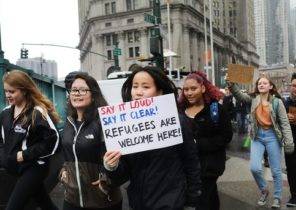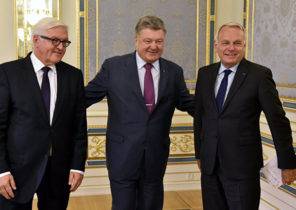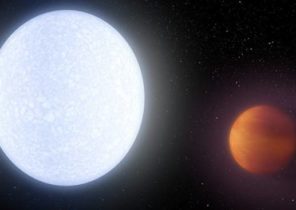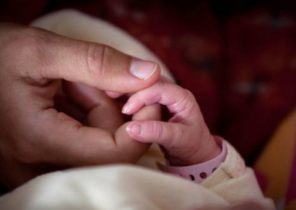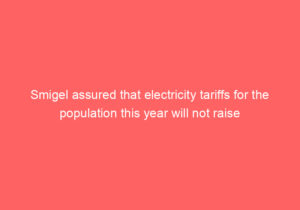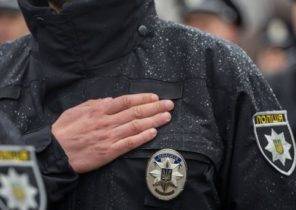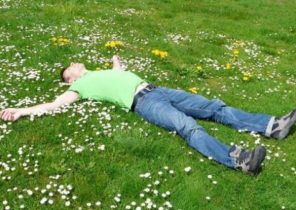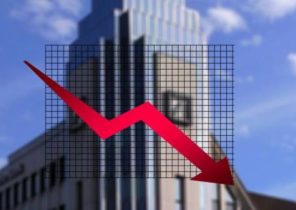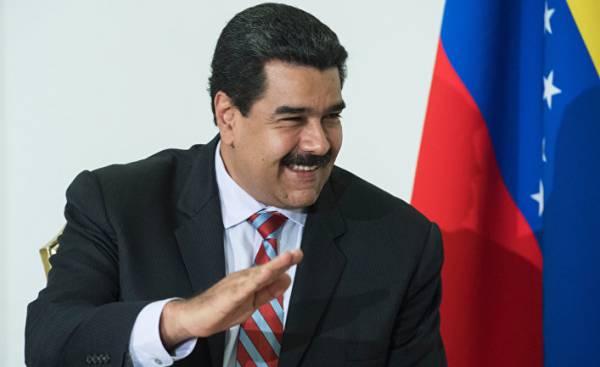
Former Venezuelan President, Hugo chávez (Hugo Chávez), if what was for sure is that the “Bolivarian project” should be inscribed in the international community. To win the support (Chavez did it with the help of “oil diplomacy”) was crucial to the survival of the Revolution. And that is what played a role in the appointment of a successor, the choice fell on Nicolas Maduro, because (as explained by the supporters of chavismo) he was the only one of the inner circle, who would become an international figure. Another mistake.
To date, the government’s political successor of Chavez is closed from the world. It not only levels criticism at the countries that are questioning the correctness of his actions, but comes from multilateral organizations such as the Organization of American States (OAS).
“Next Thursday, on the orders of President Nicolas Maduro, we will present to the OAS a letter of withdrawal and start the procedure which will last for 24 months”, — declared the head of the Venezuelan diplomacy, Delcy rodríguez (Delcy Rodríguez).
What happens with the exit of Venezuela from the OAS? “In fact, nothing explains Ronal Rodriguez (Rodríguez Ronal), the expert from the Venezuelan University of Rosario. The OAS criticized lately just for the fact that the organization is not in any way affect the situation similar to the one for Venezuelans “. The adoption of the “Democratic Charter” in 2001, it seems, moved the business from a dead point: the document envisaged the creation of mechanisms that would establish a violation of democratic order in the country and would intervene to normalize the situation.
But Maduro is said to have decided to get ahead of those who threatened to use the provisions of the Charter. “The regime prefers to withdraw from the OAS before its members will be obvious that the support provided to it for a long time many of them, significantly weakened,” adds Rodriguez.
Jose Ignacio hernández (José Ignacio Hernández), an expert in Venezuelan constitutional law, indicates that the country contradicts the Constitution and will not give any immediate results, because “in accordance with the Charter of the OAS refusal to participate in the agreement will become valid only after two years during which Venezuela should continue to perform the inter-American democratic Charter”.
Nineteen countries had demanded an extraordinary meeting of the OAS Permanent Council (the fourth of the month to discuss Venezuela) to the foreign Ministers reviewed the dire situation in Venezuela. This did not chavistas, who accused them of meddling in the internal Affairs of the country and desire to organize an illegal change of government and threatened its care.
And then carried out his threat. “From now on Venezuela will not participate in any activity and in any activities that would condone interventionism and interference in the internal Affairs of States”, — said Minister rodríguez, calling the 19 countries that voted in favour of the convening of the meeting, the “kneeling slaves”.
The Ministry of foreign Affairs of Ecuador issued a statement in which he called on all “international organizations and players to respect international law and sovereignty of Venezuela and not to support attempts to destabilize the situation in the country and you insist on meddling”. In this case, the call is directed primarily to the most radical opposition, who propose extreme solutions. Maduro says that “the Venezuelan right-wing forces practicing terrorism to cause chaos and promote foreign intervention.”
“Maduro does not have the support enjoyed by Chavez, obviously. But, in addition, it also played into the hands of the opposition, which has lost confidence in 2002 during the attempted coup against Chavez,” explains the expert Ronal Rodriguez.
The Venezuelan press insists that it’s all about the change of course of Columbia. “Maduro believed that Columbia should be his constant ally and to endure all the bumps for the fact that Venezuela maintains its peace process. But regardless of this support (for which the Colombian government warmly thanked the) Colombia free to join in any sector,” adds the analyst.
At the request of the Venezuelan government, the Community of Latin American and Caribbean States (CELAC) convene an extraordinary meeting on may 2 “to discuss an attempted coup”.
Venezuelan experts believe that the international community can exert pressure to stop the prosecution, resumed the dialogue and the question was raised about the election.
After five weeks of unrest, which, according to the prosecution, 27 people were killed and 437 were injured and 1 389 thousand were arrested (65 of them are still deprived of freedom), there is no unique solution.
None of the demands of the opposition (despite all protests not received sufficient power to put pressure on Maduro, who also has millions of supporters) was not met by the government: neither the organization of early elections nor the full restoration of the rights of the National Assembly, or the opening of a humanitarian channel, not the release of political prisoners.
The decision to withdraw from the OAS makes clear that Maduro is not familiar about the history of the membership of Venezuela in this organization. What the Venezuelan President Romulo Betancourt had insisted on the exclusion of Cuba and the Dominican Republic, when Fidel Castro and Leonidas Trujillo acted against democracy in these countries. Paradoxically, Venezuela, which more than other countries fought for democracy in the region, on the contrary, in danger.
